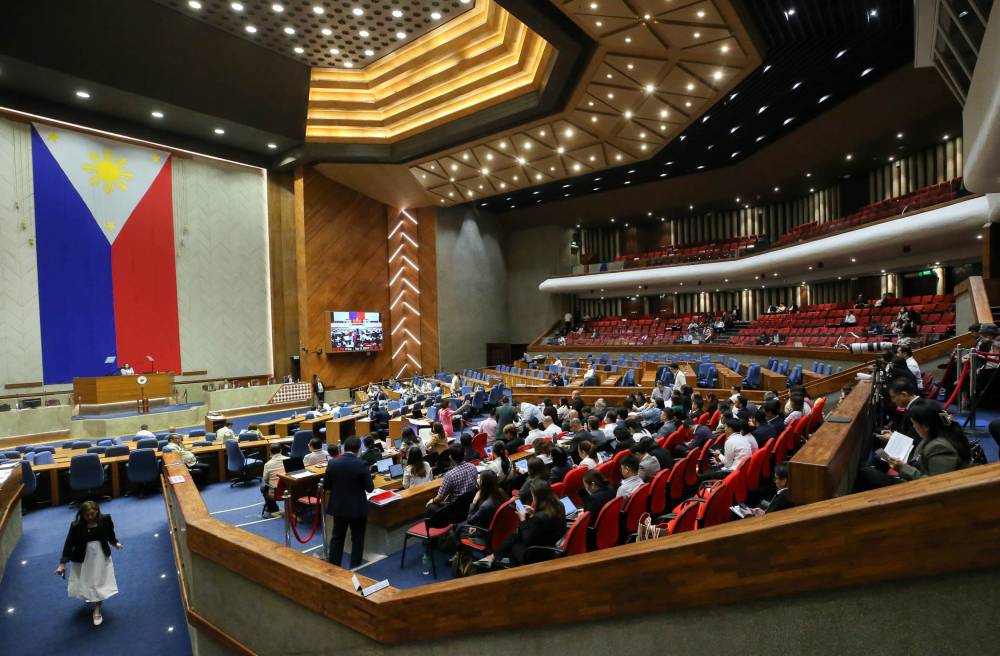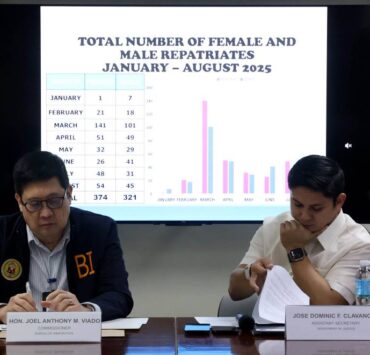Task force for public’s role in budget talks formed

The House of Representatives on Monday set in motion the reforms aimed at greater transparency in the budget-making process as it issued the guidelines on the participation of civil society organizations (CSOs) in the deliberations on the proposed P6.793-trillion National Expenditure Program (NEP) for 2026.
In Memorandum Circular No. 20-002, signed by House Secretary General Reginald Velasco, the lower chamber also mandated the creation of the House Task Force on People’s Participation (TFPP) in Budget Deliberations, which will serve as the primary liaison between the House secretariat and CSOs.
The TFPP is tasked to maintain a secure, official communication channel between the House appropriations committee and accredited CSO observers; facilitate access of accredited CSO observers to public budget hearings, whether in-person or virtual; ensure timely dissemination of hearing schedule; establish and manage a system for submission, logging and distribution of position papers and technical notes from observers to legislators and committees.
It will also develop and implement a framework to monitor and evaluate the effectiveness of the observer mechanism and gather post-deliberation feedback from House members and CSO observers to help improve policies for future budget deliberations.
The TFPP will be composed of representatives from the office of the House secretary general, the committees on appropriations and on people’s participation, the Congressional Policy and Budget Research Department (CPBRP), the press and public affairs bureau, and the legislative security bureau.
Accreditation process
The memorandum circular operationalizes House Resolution (HR) No. 94 adopted by the House on Aug. 5, which seeks to provide greater people’s participation in the budget process, along with opening the bicameral conference committee meetings to third-party observers.
Under the guidelines, CSOs and people’s organizations (POs) will undergo an accreditation process, wherein the secretary general will issue a call through public announcements, and interested organizations will submit a letter of intent, a basic organization profile, names and contact details of two representatives, and past or current registration with a national government agency and evidence of advocacy work.
The TFPP will be in charge of scrutinizing the applications and the Office of the Secretary General will inform CSOs and POs if their participation has been approved.
The representatives of the CSOs and POs will then be asked to attend an orientation on the code of conduct and rules of decorum covering document access, behavior inside halls and galleries, and basic security and safety protocols.
According to Velasco, the interim rules will apply for one budget cycle—the deliberations on the 2026 budget—and the House will review the matter and refine the framework either through House rules or legislation.
Low budget usage
As the House committee on appropriations, headed by Nueva Ecija Rep. Mikaela Suansing, formally started on Monday scrutinizing the proposed 2026 budget, the CPBRD shared a table showing the slow budget disbursement performances of some agencies, particularly the Department of Education (DepEd).
CPBRD defines obligation rates as the “ratio of amounts formally committed for spending to the allotments received.”
Disbursement rates (DR), meanwhile, are the “ratio of payments for produced or delivered goods and services out of the committed or obligated spending.”
The CPBRD flagged the “inability of government agencies to convert committed or obligated spending into actual production or delivery of public goods and services,” citing DepEd’s textbook delivery program that registered a DR of only 11 percent in 2023 and 17 percent in 2024.
“Even more concerning are the PAPs (priority programs, activities and projects) with DRs lower than 50 percent, such as the delivery of textbooks and other learning materials (11 percent to 17 percent in 2023 and 2024), and school-based feeding (48 percent in 2024),” CPBRD said.
Aside from DepEd, the CPBRD also noted the Department of Health’s low disbursement rate for the health facilities enhancement program at only 34.7 percent and 27.3 percent in 2023 and 2024.
Some of the programs under the Department of Information and Communications Technology (DICT) also suffered from low disbursement rates.
For 2023, the DICT’s National Government Data Center had a 6.7 percent DR; national broadband plan with 9.8 percent; national government portal at 21.2 percent; and free internet or Wi-Fi connection at 24.2 percent.

















